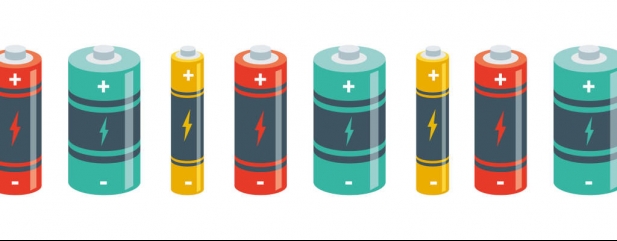Archived article
Please note that tax, investment, pension and ISA rules can change and the information and any views contained in this article may now be inaccurate.
Where next for Johnson Matthey after battery failure?

Shares in chemicals company Johnson Matthey (JMAT), have fallen by 24% over the last month. The company pre-empted its first half results announcement indicating that that full year earnings would be towards the lower end of expectations, and that it intended to dispose of its battery materials business.
This marked a major strategic failure given investment of over £400 million, and the recent emphasis placed on the division as a growth driver. Investors who were hoping for more positive news at the first half results presentation were disappointed.
Shares drifted lower despite the company announcing a £200 million share buyback and a 10% increase in the dividend. Investors are becoming increasingly concerned about management’s inability to articulate a compelling strategic vision for the company’s future.
The core catalyst business faces long-term structural decline, the healthcare business is under review (pending current discussions regarding a disposal), and the new focus on fuel cells is unlikely to yield meaningful returns in the near term if it all.
Given the strategic quagmire the company is now facing, private equity may be tempted to make a bid for the company. The rationale for such a move is simple. Milk the anticipated £4 billion of cash flows that the catalyst business will generate over the next decade, and dispose of the residual assets.

MANAGEMENT CREDIBILITY UNDERMINED BY CATHODE CATASTROPHE
Management credibility has been seriously undermined by the decision to exit its battery materials business. Johnson Matthey was late entering the lithium battery business in 2012. This was a decade later than rivals Umicore and Nichia. Johnson Matthey has developed its presence in the segment with a series of acquisitions, starting in 2012 with Axeon, a battery system consultancy based in Scotland and e-bike assembler in Poland.
This was followed in 2014 and 2015 with two further acquisitions for approximately $100 million which provided it with a manufacturing presence in China and Canada for LFP cathode materials (lithium iron phosphate is a popular, cost-effective cathode material that delivers excellent safety and a long life span).
At the capital markets day in September 2017 Johnson Matthey took the investor community by surprise with a presentation claiming that it had made a breakthrough in developing a unique high energy cathode material for electric vehicle applications with best in class properties.
Johnson Matthey maintained that their new material named eLNO (enhance Lithium Nickel Oxide) offered 20-25% improved energy density than its peer group, whilst requiring lower levels of scarce cobalt.
At this time the board approved a £200 million investment in a commercial plant. However in November 2020 the company told the markets that this figure would be £550 million due to a desire to build in greater customer flexibility. The company had been on target to start building a new factory in Finland to build as many as 300,000 automotive batteries a year.
Management cited increasing competition and capital intensity as reasons for exiting the business. According to data company Bencmark Minerals, eight Asian companies control 58% of global battery supply. These include China’s Contemporary Amperex Technology and BYD, South Korea’s LG Chem and Samsung, and Japan’s Panasonic.
Johhson Matthey’s battery business has 430 permanent employees, who are predominantly based in the UK. The stated intention is to find a buyer for the business. However Liberum chemicals analyst Adam Collins remains sceptical of this being a likely outcome ‘since it has been unable to find a joint venture partner, we are doubtful it can secure much from a sale’. Hopes have subsquently been raised by reports India’s Tata Chemicals might make a bid of up to $700 million.
STRATEGIC PIVOT TO HYDROGEN/FUEL CELLS.
There is a strategic rationale in Johnson Matthey’s pivot to hydrogen, given its platinum group metal (PGM) expertise. Platinum, palladium and other metals that are used in catalytic converters are also critical for clean technology, such as the electrolysers that split water into hydrogen.
Johnson Matthey is a leader in the production of catalysts for use in PEM fuel cells. (PEM fuel cells, are a type of fuel cell being developed mainly for transport applications).
They are a leading candidate to replace the aging alkaline fuel cell technology. Johnson Matthey’s manufacturing facility in Swindon opened in 2002 and was the world’s first dedicated production facility for membrane electrode assemblies (the combination of platinum electrodes and proton membrane which is critical to fuel cell performance).
Johnson Matthey forecasts that its fuel cells will have sales of £200 million a year by 2025. To meet this target it is planning a £50 million hydrogen fuel cell gigafactory that would build components for a new generation of vehicles.
The Hertfordshire plant will produce proton exchange membranes, essential components in hydrogen fuel cells. These cells provide power to motors via an electro-chemical process that burns the hydrogen and releases it as electricity. The key advantages of this technology include good power density, reliability and an ability to start up quickly.

FLAWS IN THE HYDROGEN STORY
A huge amount of energy is wasted with hydrogen because the process (undertaken by the fuel cell), of generating electricity by reconstituting the hydrogen and oxygen to produce water, is extremely inefficient and half the energy is lost in the process. This means three times as much electricity is required to propel a fuel cell vehicle the same distance as a battery electric vehicle.
This view has been echoed by Volskwagen’s Scania truck brand that has discontinued its hydrogen development. It has claimed that it is too expensive and inefficient. Previously, Scania had been a principal advocate of hydrogen-powered trucks.
There are several reasons why private equity firms may be considering Johnson Matthey as a potential target. First, until his replacement Liam Condon arrives next February, the current chief executive Robert MacLeod is a dead man walking.
Second, there is no guarantee that the new focus on hydrogen will deliver the anticipated results. Hydrogen is very much an experimental and unproven technology. Even in an optimistic scenario, Liberum chemicals analyst Adam Collins explains ‘the fuel cells business is unlikely to grow significantly until hydrogen trucks rollouts later this decade’.
Third, the market may become impatient given the long-term investment required before witnessing any return from the investment in fuel cell technology.
Important information:
These articles are provided by Shares magazine which is published by AJ Bell Media, a part of AJ Bell. Shares is not written by AJ Bell.
Shares is provided for your general information and use and is not a personal recommendation to invest. It is not intended to be relied upon by you in making or not making any investment decisions. The investments referred to in these articles will not be suitable for all investors. If in doubt please seek appropriate independent financial advice.
Investors acting on the information in these articles do so at their own risk and AJ Bell Media and its staff do not accept liability for losses suffered by investors as a result of their investment decisions.

 magazine
magazine








